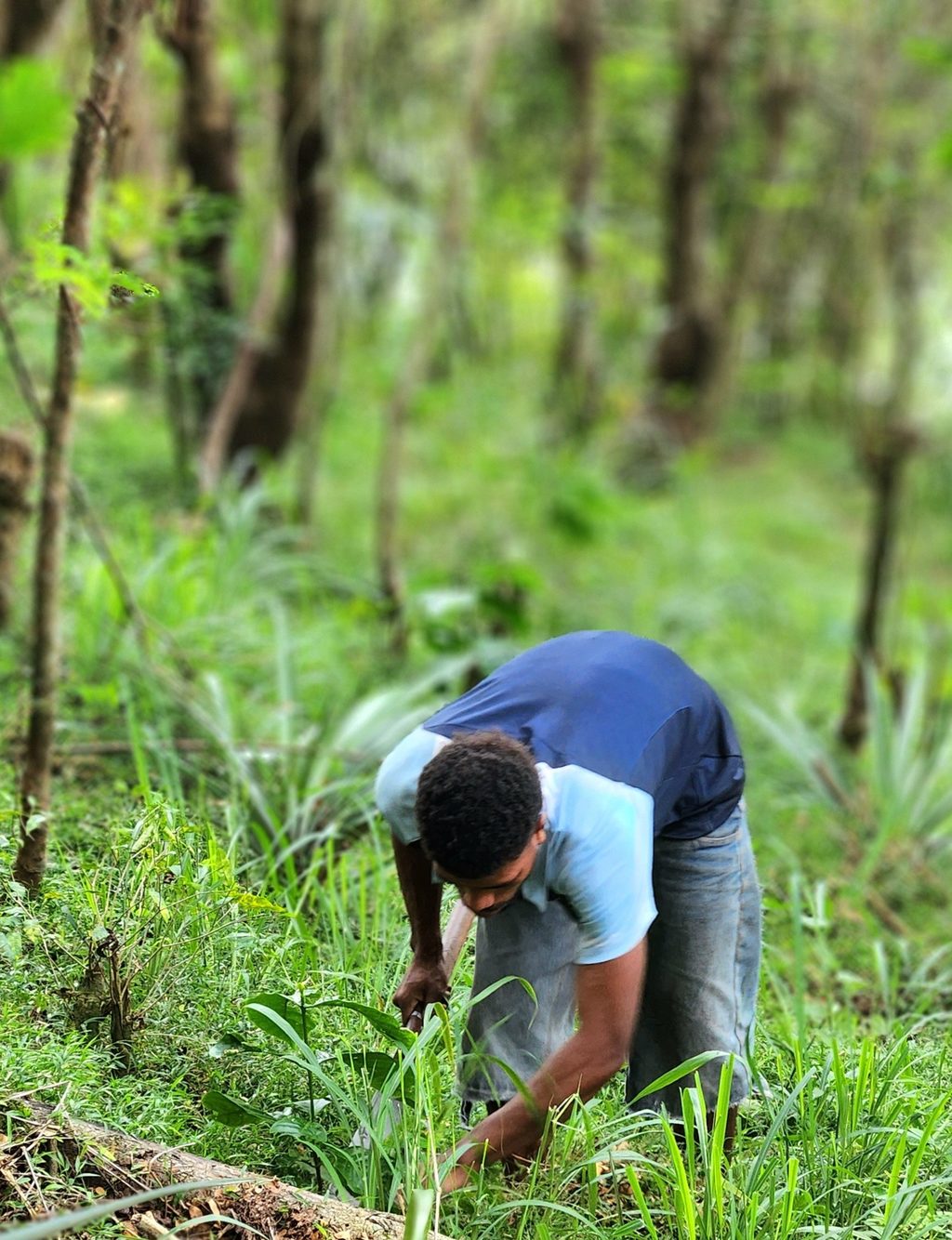Narrow winding roads and living remotely up in the highlands of Navosa has not stopped the resilient youths of Draubuta from thriving in their community.
They believe youths are the future foundation of any nation. When they flourish so does the community.
The Christian Mission Fellowship International (CMFI) Draubuta Youth group in the highlands of Navosa an exemplary group that hopes to step out of their comfort zone and gain valuable life skills.
Since officially registering with the Ministry of Youth, the CMFI Draubuta Youth members have learned to utilise assistance programs offered by Government ministries and NGOs.
Wanting to make an impact in the village, the group has not only empowered youths to be faithful servants of God but to also inspire others to serve the community better.
As the youth group number increases, the CMFI Draubuta Youth has had to devise creative ideas that would keep the group together.
“We noticed that not a lot has been done in terms of youth development here so we wanted to do something that can help motivate youths,” he said.
“Also when we go to church rallies or events in Suva and Lautoka we noticed that a lot of funds we raise would go to our travelling expenses.
“When we return, we do the same thing over again, struggling to raise funds for youth activities. So, we thought we would come up with some ideas that would help solve our funding issue.
Solesolevaki
The youth came up with the idea of solesolevaki, where they helped out in the village.
The funds they managed to raise was set aside.
“We would go help other youths with their farms – help plant cassava, yaqona or do weeding and clearing.
“We would spend one week out in the forest, spend a day in one farm and then move onto the next one the following day.
The group abandoned the idea of only spending money and took up saving ideas quite quickly after they initiated the solesolevaki idea.
“We managed to raise $250 in our first solesolevaki. After raising the funds, we discussed on how we were going to save the money raised.
“We decided to open an account with Fijian Holdings. We selected our trustees, opened an account and put the money in.
That was the first step to the group saving.
The members of the youth group continued with their solesolevaki activities, even though some had lost interest along the way.
“The rest of us kept pushing on – continuing the work and trusting the process.
“We went on to seek assistance from Government and we were part of the Jobs for Nature project.
“There were other projects as well, we managed to attend training courses with the Ministry of Youth and with FNU in Lautoka – learning about business and caregiving.
He said when a youth group was registered, having access to training and programs was made easy.
“We couldn’t just rely on our solesolevaki activity in the village but had to try other ideas that will help us grow.
Coffee, Cacao and Turmeric Project
One of the projects that the youth group started was with Bula Coffee in Sigatoka.
“Right now we have a farm where we have planted 600 coffee plants. This is in partnership with Bula Coffee owned by Luke Fryett.
“They gave us 600 plants to grow. All the plants are growing well in the farm.
“The Ministry of Agriculture have also assisted us, we received 200 cacao plants which we have planted and we have also successfully planted 200 pineapple and chilli plants.”
The group managed to secure a deal with the ministry where it supplies turmeric at $3 a kg.
According to the ministry, turmeric is a perennial plant with a short stem and tufted leaves which originated in India and Southeast Asia.
It is a member of the Curcuma botanical group, which is part of the ginger family of herbs, the Zingiberaceae.
In Fiji the turmeric production areas are mainly in Tailevu and Rewa while most turmeric is found growing in the wild in Vanua Levu and in some areas in Ra, Nadroga and Navosa.
Mr Gaso said in Navosa the previous price for turmeric was $1 and $1.50.
“Buyers bought turmeric at $1 to $1.50 a kilo from us before but when the ministry came in and bought it at $3 a kilo, the other buyers had no choice but to buy it at a higher price too.
“The other buyers are now buying turmeric from villagers at $1.90 to $2 a kilo compared to the previous price.
“The increase has helped youths and villagers in Navosa to earn more, and we thank the Ministry of Agriculture for showing others the value of turmeric.”
The youths have other projects that are financially supporting them in the village.
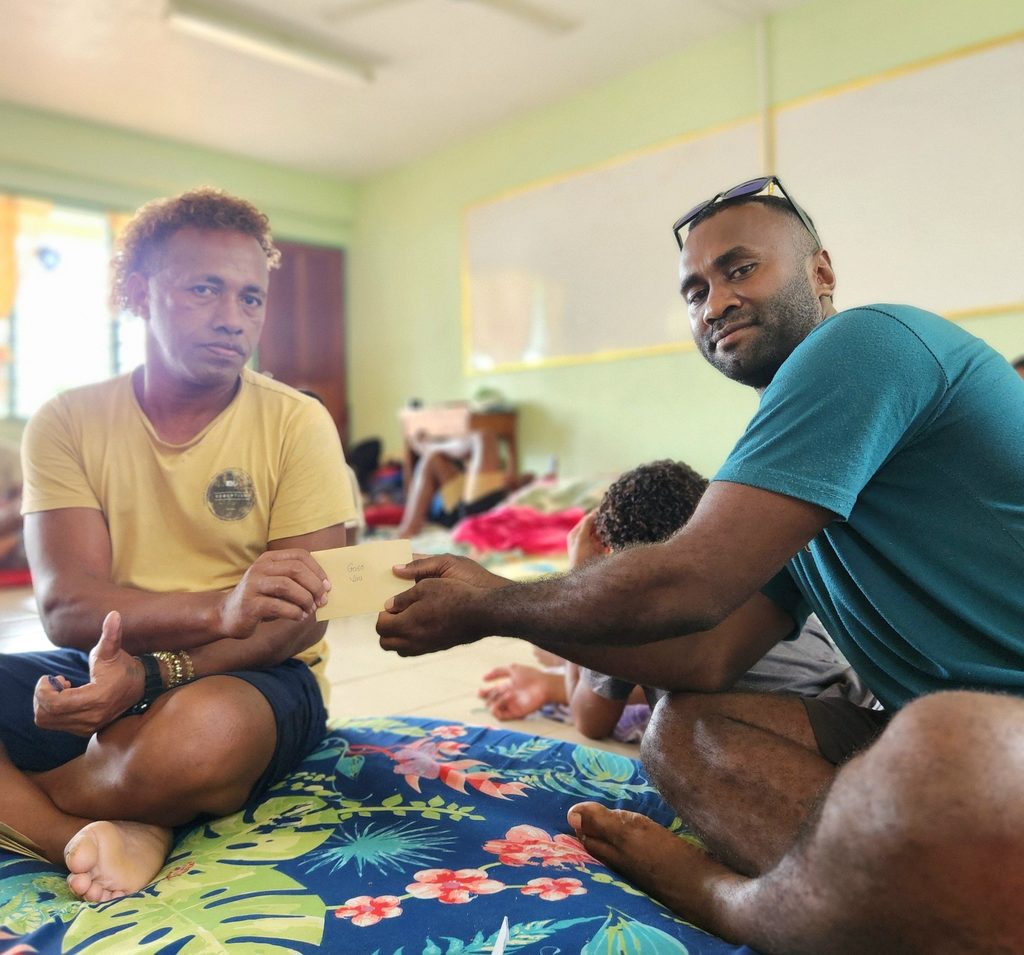
CMFI Draubuta Youth Group president, Viliame Gaso (right) receives payment for the Jobs for Nature project. Picture: SUPPLIED
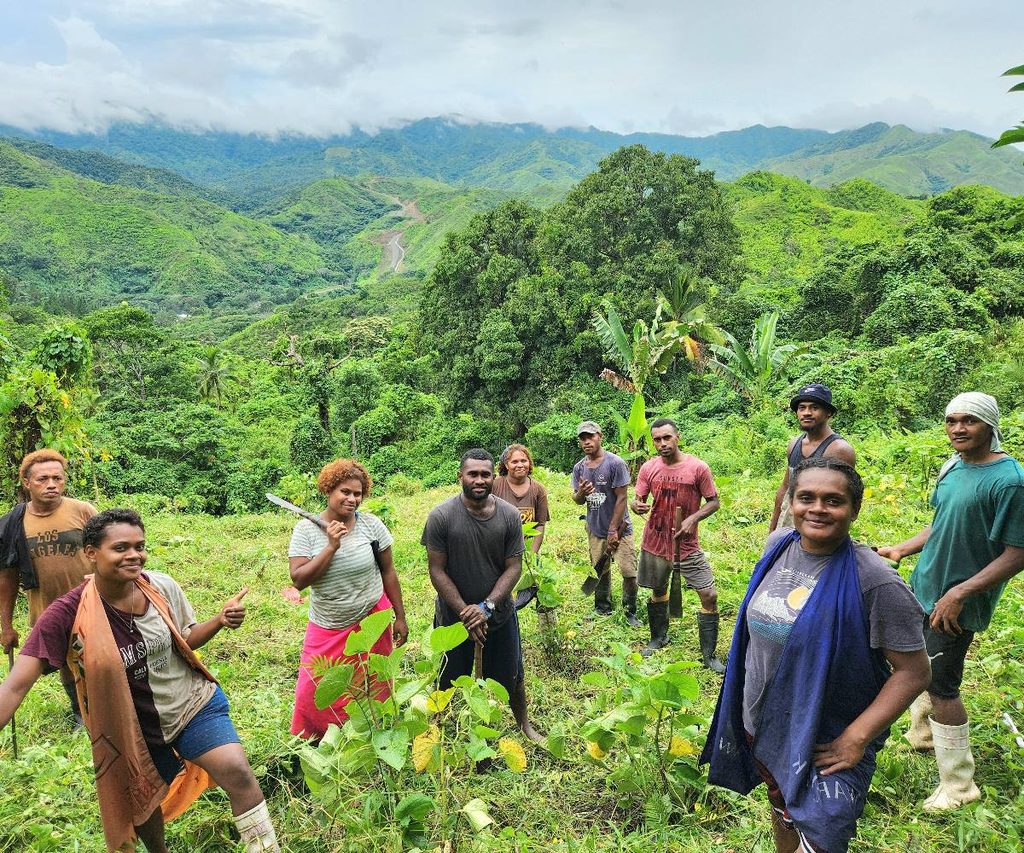
Solesolevaki, youths of Draubuta at a yaqona farm. Picture: VILIAME GASO JUNIOR
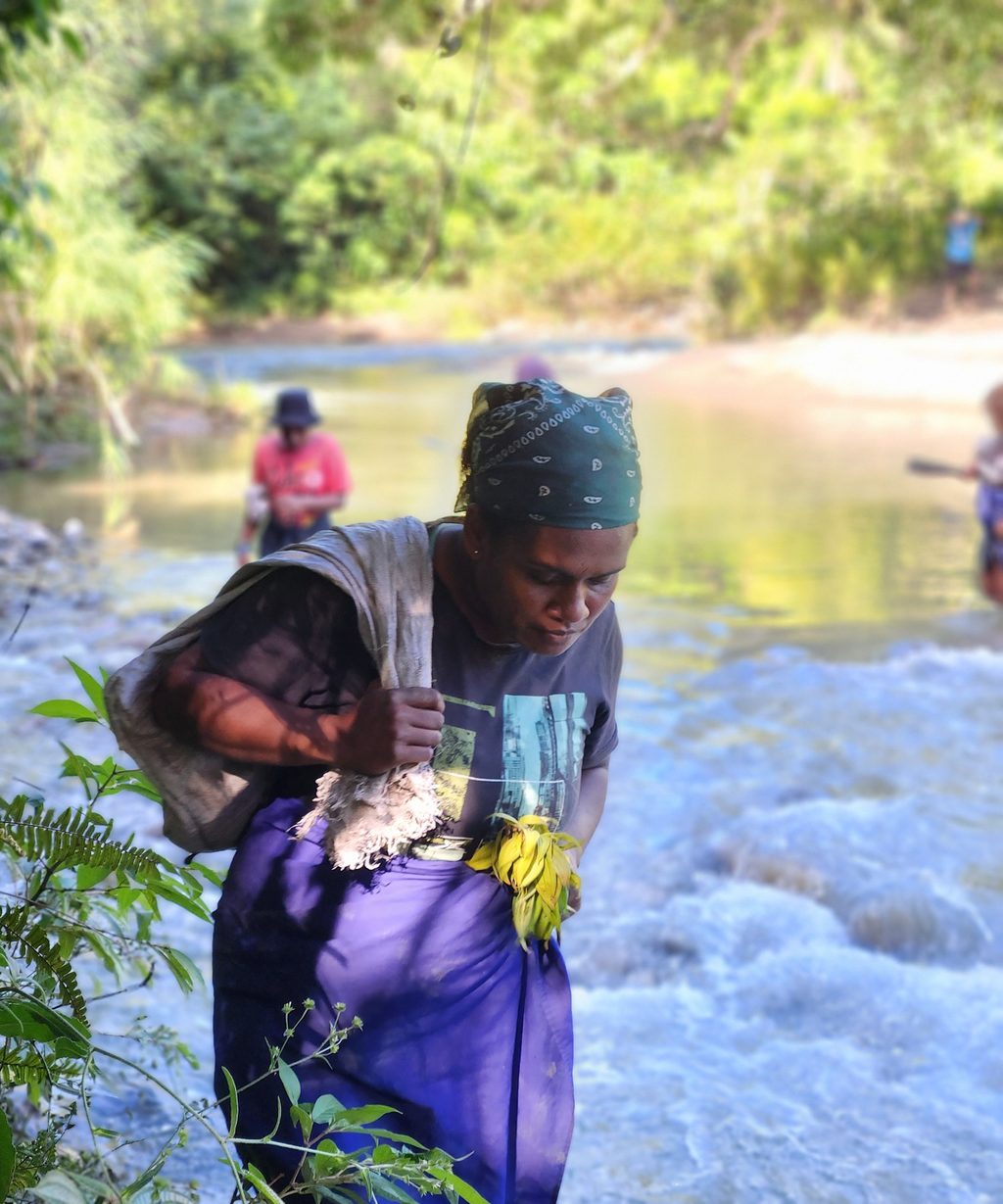
Returning home after a hectic day at the farm. Picture: VILIAME GASO JUNIOR
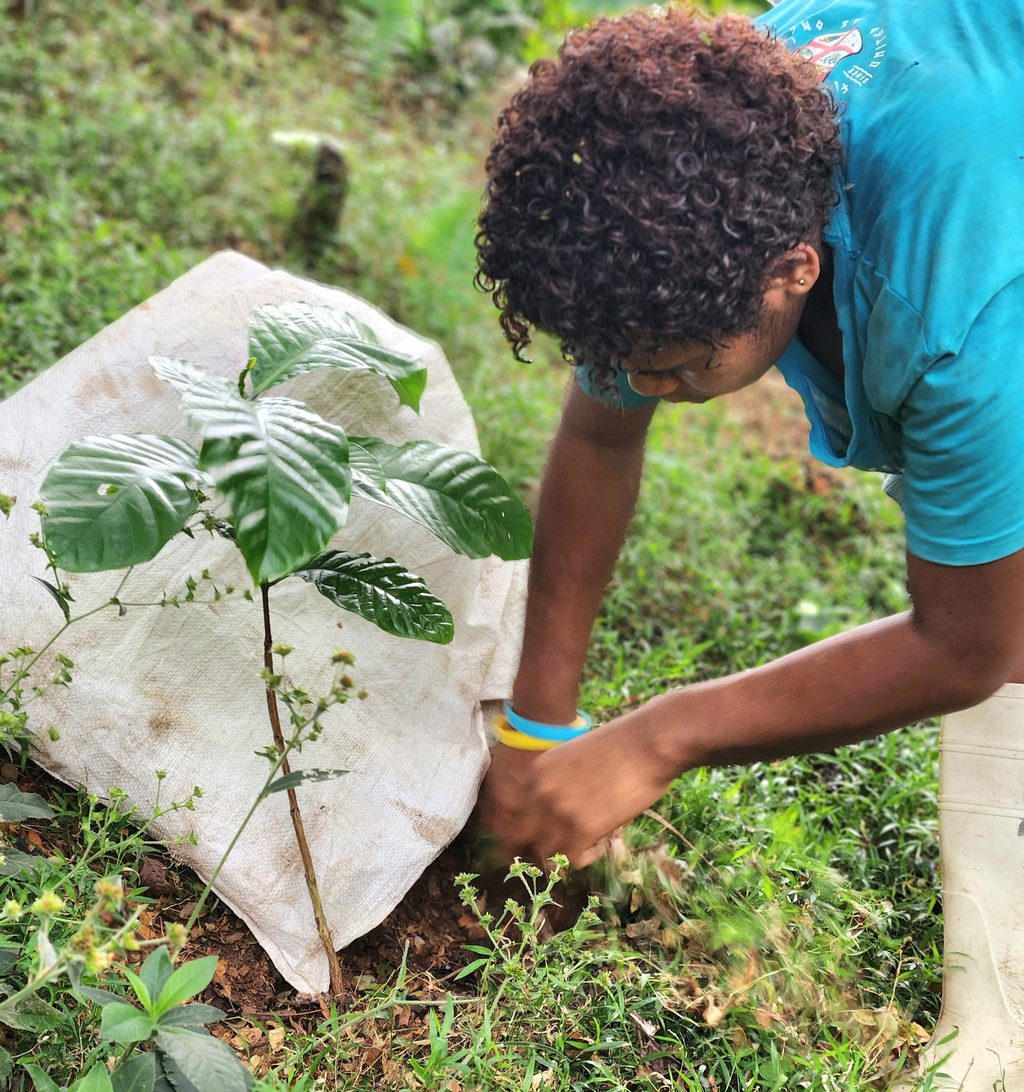
The youths planted 600 coffee plants in their farm. Picture: VILIAME GASO JUNIOR
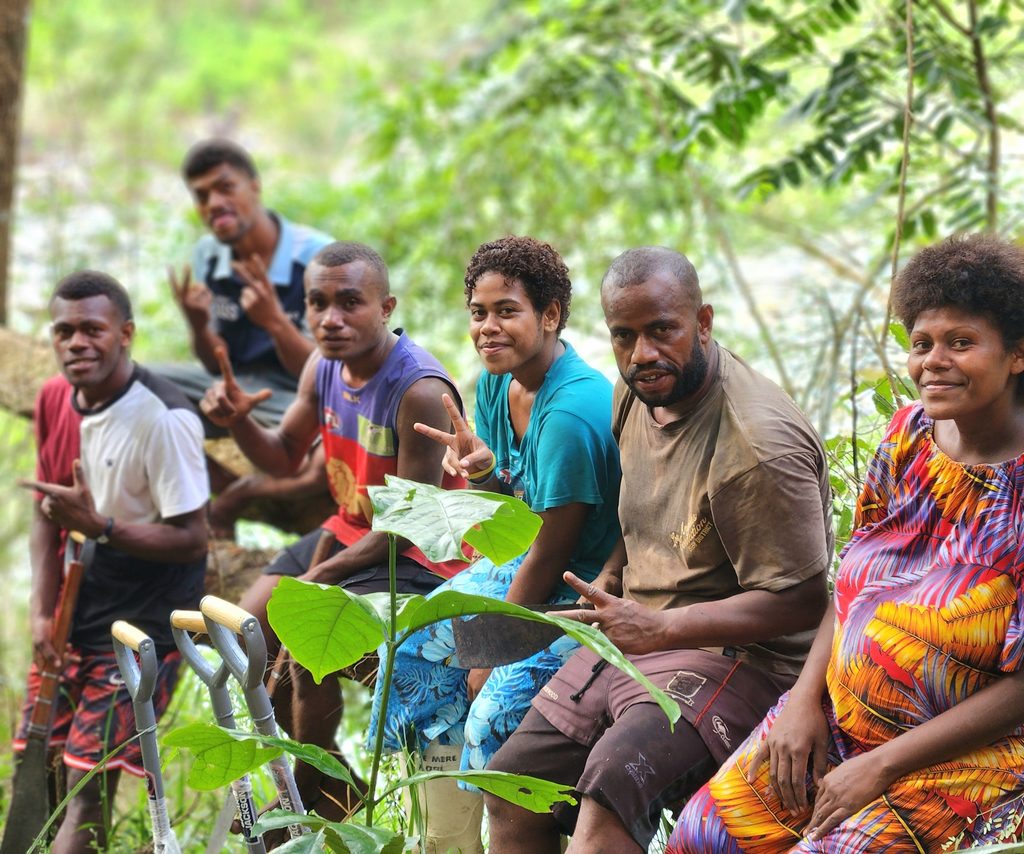
Taking a break from farming. Picture: VILIAME GASO JUNIOR
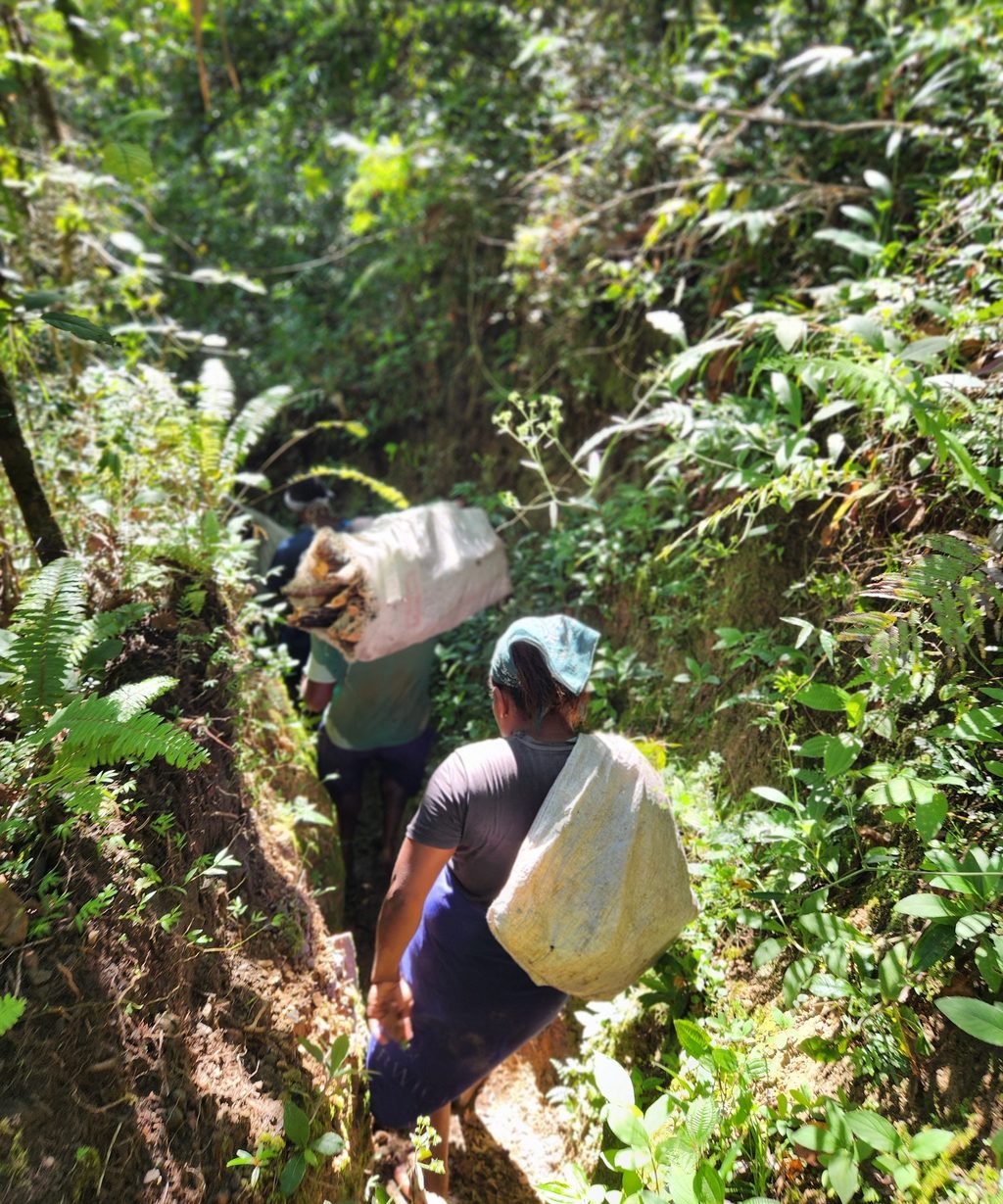
Returning home with some firewood. Picture: VILIAME GASO JUNIOR
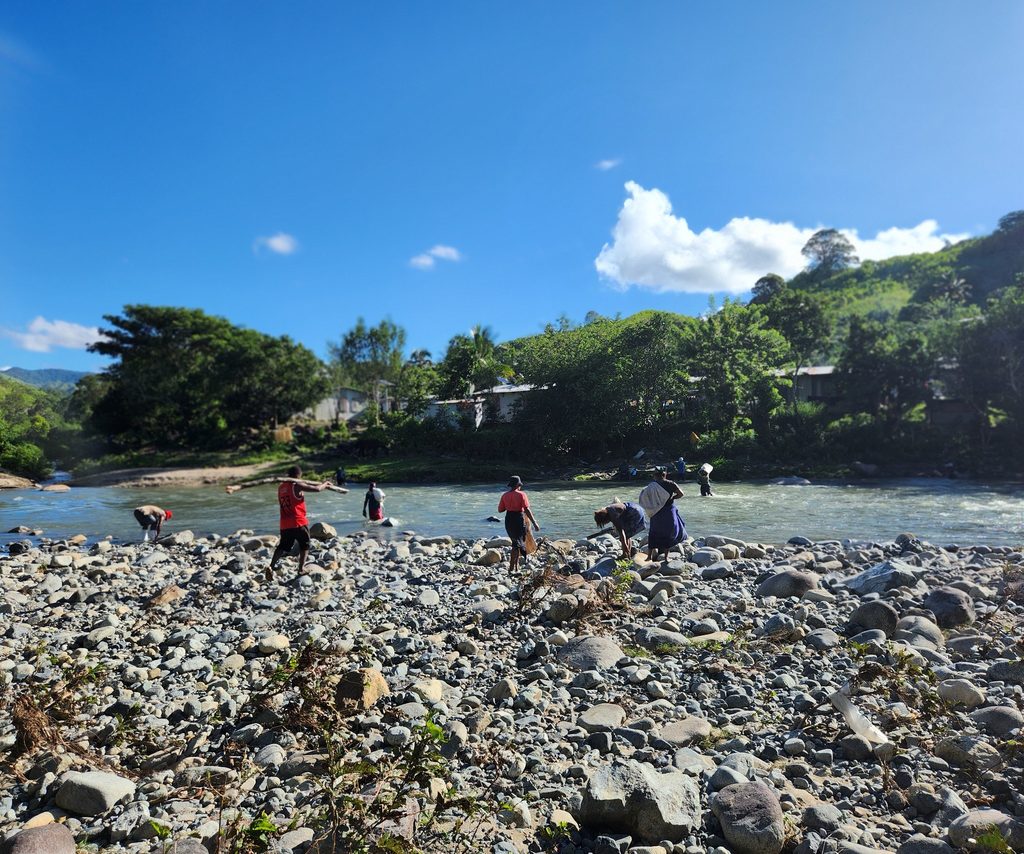
Youths cross the river to get to Draubuta Village after returning from the farm. Picture: VILIAME GASO JUNIOR
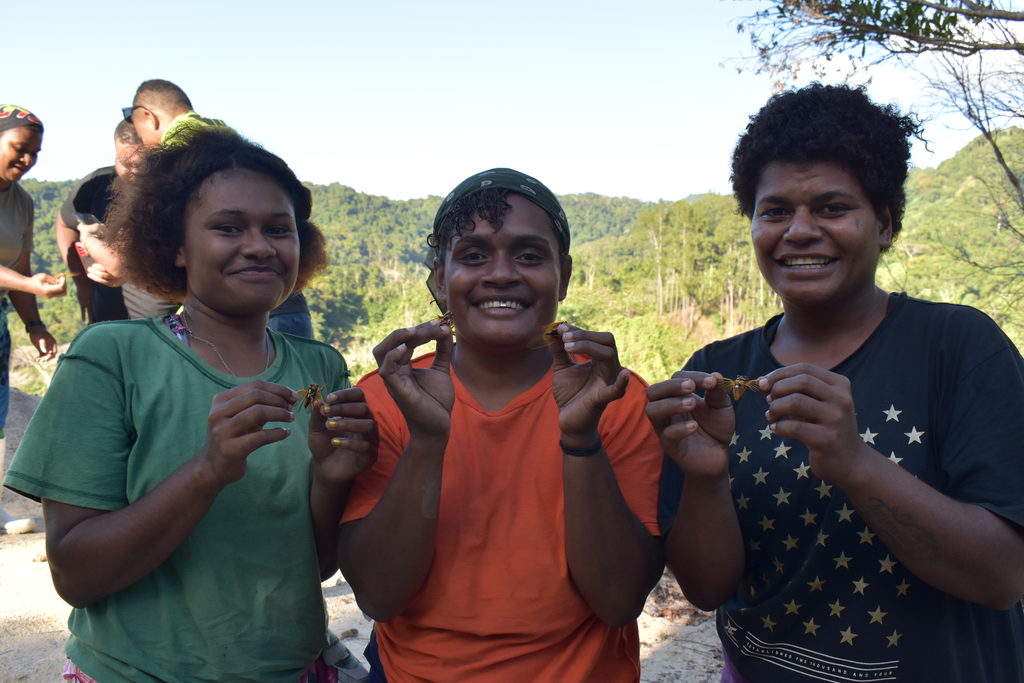
Youths of Draubuta with the Yavusa Emalu’s totem, the Nanai. Picture: ALIFERETI SAKIASI

